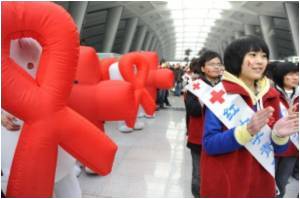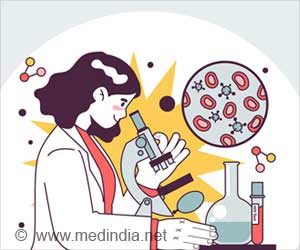Scientists have now provided revolutionary tools to roll back HIV but only a major funding boost, supported especially by emerging giant economies, will determine the outcome, experts say.

"We are in dangerous times for AIDS funding," said Peter Piot, director of the London School of Hygiene and Tropical Medicine and ex-head of UNAIDS.
"Science is running much faster now than what we can implement and what we can pay for."
The four-day Rome conference, ending Wednesday, heard the outcome of several landmark trials.
The biggest found that giving early drug therapy to people with HIV reduced the risk of infecting others by a massive 96 percent.
Other trials found that giving antiretrovirals to a non-infected partner reduced the risk by around two-thirds.
Advertisement
They join male circumcision, a proven measure to protect men, to which a vaginal microbicide, still under test, may one day be added for women.
Advertisement
Making inroads into this tally means stumping up more money swiftly, said Julio Montaner, director of the BC Centre for Excellence in HIV/AIDS in British Columbia, Canada.
The higher early cost would lead to dividends, though. Eventually fewer people would ultimately become infected -- and people on treatment contribute to the economy because they are healthy rather than a burden to it through sickness.
"It could pay for itself in about a decade," calculated Jean-Paul Moatti, an economics professor at France’s University of the Mediterranean in Marseille, southern France.
The financial outlook, though, is worrying.
Between 2001 and 2009, help for fighting AIDS in low- and middle-income countries rose nearly 10-fold, from $1.6 billion to $15.9 billion each year.
But in 2010, resources declined as Western countries, the mainstay of external funding, tightened the belt in response to their fiscal restraints.
Today, some 6.6 million people in poor countries have grasped the drug lifeline, but another nine million are still in need of treatment.
Reaching them by 2015, in line with the newly stated goal by UN members, will require between $22 billion and $24 billion annually.
Where will the money come from?
Campaigners point to these main options:
-- help from rich countries, although it seems unlikely that much extra cash will come from the United States, which already accounts for 60 percent for external resources. Italy, though, still owes the Global Fund to Fight AIDS, TB and Malaria $260 million for the last two years.
-- innovative levies, such as UNITAID’s solidarity tax on airline tickets sold in 15 countries, which has already raised $1.3 billion.
-- tapping oil-rich countries in the Gulf and fast-growing developing countries, especially China and India, which could forego Global Fund money to free up the resources for badly hit countries in Africa.
Eventually, the new giants could become donors, in line with their aspirations for global status.
Global Fund chief Michel Kazatchkine admitted he had made little headway so far into opening up these sources.
The Fund has disbursed $13 billion since its creation, of which four percent has gone to China. Yet the country is sitting on foreign exchange reserves of $3.2 trillion.
"There is a lot of impatience (in rich countries about China) but it takes time," he told AFP.
"We have to recognise that it is about when China wants to move from being a recipient developing country to a major international player. It has moved with the IMF and the World Bank. I’m hopeful that in the next two or three years the Global Fund will become also attractive to China."
Source-AFP















